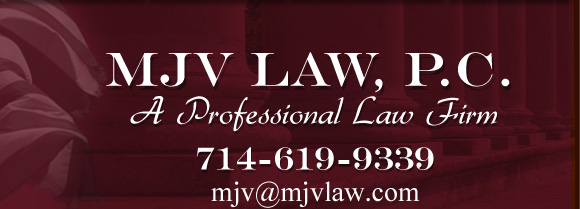|
|
|
|
 |
Probate Questions and Answers
What is probate?
How long does the probate of an estate take?
What types of assets are subject to probate?
Why would assets listed in a will be subject to probate?
What if I die without a will?
Who should I appoint as my executor?
What should I consider before visiting with my probate attorney?
What is probate?
Probate is a court-supervised process for transferring a deceased person’s assets to the beneficiaries listed in his or her will. Typically, the executor named in your will would start the process after your death by filing a petition in court and seeking appointment. Your executor would then take charge of your assets, pay your debts and, after receiving court approval, distribute the rest of your estate to your beneficiaries. If you were to die intestate (that is, without a will), a relative or other interested person could start the process. In such an instance, the court would appoint an administrator to handle your estate. Personal representative is another term used to describe the administrator or executor appointed to handle an estate. Simpler procedures are available for transferring property to a spouse or for handling estates in which the total assets amount to less than $100,000. The probate process has advantages and disadvantages. The probate court is accustomed to resolving disputes about the distribution of assets fairly quickly through a process with defined rules. In addition, the probate court reviews the personal representative’s handling of each estate, which can help protect the beneficiaries’ interests. One disadvantage, however, is that probates are public. Your estate plan and the value of your assets will become a public record. Also, because lawyer’s fees and executor’s commissions are based on a statutory fee schedule, a probate may cost more than the management and distribution of a comparable estate under a living trust. Time can be a factor as well. A probate proceeding generally takes longer than the administration of a living trust. Discuss such advantages and disadvantages with an estate planning lawyer before making any decisions.
Go back to top
How long does the probate of an estate take?
The probate of an estate can take anywhere from seven months to two years, depending on where the probate is filed and what is involved in the decedent’s estate. If the probate of a decedent’s estate will be complicated by litigation by disgruntled heirs, the probate could take years to resolve while the litigation is ongoing. Not to mention that the costs on both sides to litigate the probate could be huge. Needless to say, property that is properly funded into a living trust would have avoided the probate of the decedent’s estate.
Go back to top
What types of assets are subject to probate?
The types of assets subject to probate depend on the value of the asset and how the owner held title. If the property’s title is held in the name of the decedent’s trust, then the probate court has no jurisdiction to handle that particular asset. Also, assets held in joint tenancy with another person are not subject to probate unless both joint tenants passed away. The probate court handles the transfer of title to the surviving beneficiaries. If the owner to the asset transferred the title to the property to someone else, or to himself and another, or into a trust, then there is no need for the probate court to handle that asset. Additionally, any real property (houses, land, etc.) that is not transferred into a trust or into a joint tenancy, and is owned solely by the decedent at his or her death, that real property is subject to the probate court. That rule extends to other assets such as bank accounts. Most other assets of minimal value do not go through probate. However, assets valued at $100,000 or more that are not transferred into a trust or owned jointly with another, will be subject to probate. Even assets to be distributed pursuant to instructions within a will can be subject to probate.
Go back to top
Why would assets listed in a will be subject to probate?
A will is your personal written instructions of how you want your assets distributed after your death. A will does nothing to actually transfer the title to the beneficiaries. A trust on the other hand actually does transfer title. Because the will fails to do so, the probate court must step in and transfer the title for you. Your last will may say that your house will go to you son. However, if you die with the house solely in your name and not in the name of your son or your trust, then the probate court will be needed to assist in the transfer of the asset.
Go back to top
What if I die without a will?
If you die without a will (or trust), then your assets may be subject to probate. It is better for you to have a will than to not because then minimally speaking there would be no question as to whom you wanted your assets to be distributed to. Also, if you die without a will, the court must appoint an administrator (like an executor) who will manage your estate in probate. Additionally, your assets will be subject to ‘interstate succession’. That is, the law dictates who shall receive your assets even if you would not have distributed your assets to those persons in your will.
Go back to top
Who should I appoint as my executor?
The choice of an executor is a very personal one. You could name your spouse or domestic partner as your executor or trustee. Or you might choose an adult child, another relative, a family friend, a business associate or a professional fiduciary such as a bank. Your executor does not need any special training. What is most important is that your chosen executor is organized, prudent, responsible and honest. Both are responsible for ensuring that your written instructions are followed. You should always discuss your choice of an executor with your estate planning lawyer. There are many issues to consider. For example, will the appointment of one of your adult children hurt his or her relationship with any other siblings? What conflicts of interest would be created if you name a business associate or partner as your executor? And will the person named as executor have the time, organizational ability and experience to do the job effectively?
Go back to top
What should I consider before visiting with my probate attorney?
There are many important things to consider before you visit with your probate attorney. First, you should know and understand the important assets and the approximate value of each of those assets of the decedent. Second, your should find and locate the original will (if one exists) or at least make a diligent effort to see if a will existed. Third, you should be able to communicate with the children or beneficiaries of the decedent and ensure them that the estate will be subject to probate. Fourth, you should locate an experienced probate attorney and then arrange to meet with that attorney.
Go back to top
|
 |
|
|
|
|
|
We can assist you if you are seeking an affordable Los Angeles County divorce attorney or an affordable Orange County divorce attorney, or if you are seeking a divorce lawyer in the following cities: Aliso Viejo divorce lawyer, Anaheim divorce lawyer, Atwood divorce lawyer, Balboa divorce lawyer, Balboa Island divorce lawyer, Barber City divorce lawyer, Brea divorce lawyer, Buena Park divorce lawyer, Canyon Acres divorce lawyer, Capistrano Beach divorce lawyer, Carlton divorce lawyer, Cerro Villa Heights divorce lawyer, Costa Mesa divorce lawyer, Coto De Caza divorce lawyer, Cypress divorce lawyer, Dana Point divorce lawyer, Des Moines divorce lawyer, El Modena divorce lawyer, El Toro divorce lawyer, Foothill Ranch divorce lawyer, Fountain Valley divorce lawyer, Fullerton divorce lawyer, Garden Grove divorce lawyer, Hansen divorce lawyer, Huntington Beach divorce lawyer, Huntington Harbour divorce lawyer, Irvine divorce lawyer, La Habra divorce lawyer, La Jolla divorce lawyer, La Palma divorce lawyer, Ladera Ranch divorce lawyer, Laguna Beach divorce lawyer, Laguna Hills divorce lawyer, Laguna Niguel divorce lawyer, Laguna Woods divorce lawyer, Lake Forest divorce lawyer, Las Flores divorce lawyer, Lido Isle divorce lawyer, Los Alamitos divorce lawyer, Midway City divorce lawyer, Mission Viejo divorce lawyer, Moody divorce lawyer, Newport Beach divorce lawyer, Newport Coast divorce lawyer, Newport Heights divorce lawyer, North Tustin divorce lawyer, Ocean View divorce lawyer, Olive divorce lawyer, Orange divorce lawyer, Placentia divorce lawyer, Portola Hills divorce lawyer, Rancho Santa Margarita divorce lawyer, Rancho Trabuco divorce lawyer, Robinson Ranch divorce lawyer, Rossmoor divorce lawyer, San Clemente divorce lawyer, San Joaquin Hills divorce lawyer, San Juan Capistrano divorce lawyer, Santa Ana divorce lawyer, Seal Beach divorce lawyer, Smeltzer divorce lawyer, South Anaheim divorce lawyer, South Laguna divorce lawyer, South Santa Ana divorce lawyer, Stanton divorce lawyer, Sunny Hills divorce lawyer, Sunset Beach divorce lawyer, Surfside divorce lawyer, Trabuco Highlands divorce lawyer, Tustin divorce lawyer, Villa Park divorce lawyer, West Anaheim divorce lawyer, Westminster divorce lawyer, Wintersburg divorce lawyer, Yorba Linda divorce lawyer. |





